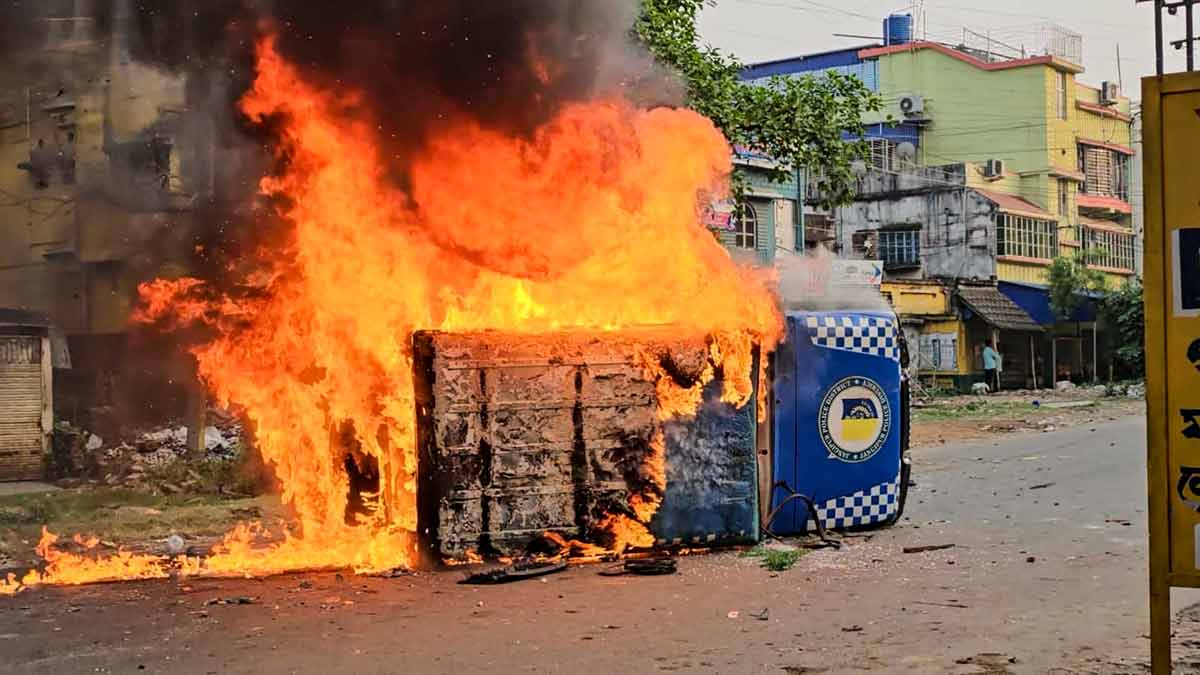Waqf violence: West Bengal govt transfers top cops of Murshidabad, Jangipur as NCW publishes fact-finding report on violent clashes
 Smoke and flames billow out from a vehicle after it was set ablaze during a protest over the Waqf (Amendment) Act, in Murshidabad district of West Bengal | PTI
Smoke and flames billow out from a vehicle after it was set ablaze during a protest over the Waqf (Amendment) Act, in Murshidabad district of West Bengal | PTI
In the backdrop of violence in some parts of Murshidabad district earlier this month, the West Bengal government transferred the superintendents of police (SPs) of both Murshidabad and Jangipur police districts on Friday. The administration, however, has insisted that these are routine transfers.
IPS officer Kumar Sani Raj has taken over as the SP of Murshidabad, replacing Surya Pratap Yadav. Shaw Kumar Amit, who previously served as Deputy Commissioner of Traffic (South) in Kolkata Police, has been appointed as the SP of Jangipur, succeeding Ananda Roy.
The transfers come in the wake of violent protests earlier this month in areas like Samserganj, Suti and Raghunathganj over the Waqf Amendment Act, 2025. The unrest claimed three lives and displaced many residents, forcing some to seek refuge in neighbouring Malda district and Jharkhand.
The police faced intense criticism over their handling of the situation. However, with the imposition of prohibitory orders, internet shutdowns, and support from central forces, law and order was eventually restored. The police formed a special investigation team (SIT) and arrested more than 290 people.
The transfers of the senior police officials incidentally came on a day the National Commission for Women (NCW) released a fact-finding report about the Waqf protest-related violence in Murshidabad, alleging police inaction. An NCW delegation, comprising Commission chairperson Vijaya Kishore Rahatkar, had visited the violence-affected regions.
Questioning the impartiality of the police, the NCW said, “Growing doubt over the force’s neutrality, competence and intent have deepened public mistrust.” It also claimed that “the police were seen as soft on rioters”. It further added that an environment of fear and insecurity prevails, leaving communities vulnerable and fracturing the social fabric.
It further pointed out that despite having prior intelligence and warning signs, the local authorities failed to act in time. The region’s closeness to the international border, the report added, has further complicated the situation.
India